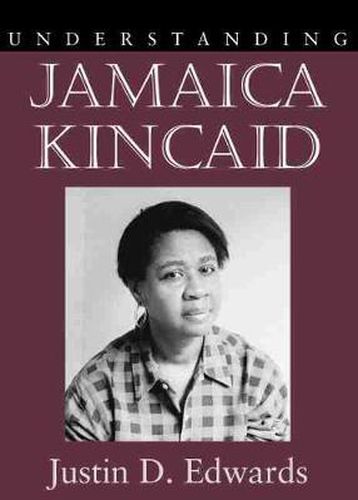Readings Newsletter
Become a Readings Member to make your shopping experience even easier.
Sign in or sign up for free!
You’re not far away from qualifying for FREE standard shipping within Australia
You’ve qualified for FREE standard shipping within Australia
The cart is loading…






Understanding Jamaica Kincaid introduces readers to the prizewinning author best known for the novels
Annie John ,
Lucy , and
The Autobiography of My Mother . Justin D. Edwards surveys Jamaica Kincaid’s life, career, and major works of fiction and nonfiction to identify and discuss her recurring interests in familial relations, Caribbean culture, and the aftermath of colonialism and exploitation. In addition to examining the haunting prose, rich detail, and personal insight that have brought Kincaid widespread praise, Edwards also identifies and analyzes the novelist’s primary thematic concerns - the flow of power and the injustices faced by people undergoing social, economic, and political change. Edwards chronicles Kincaid’s childhood in
Antigua , her development as a writer, and her early journalistic work as published in the
New Yorker
and other magazines. In separate chapters he provides critical appraisals of Kincaid’s early novels; her works of nonfiction, including
My Brother
and
A Small Place ; and her more recent novels, including
Mr. Potter . Edwards discusses the way in which Kincaid both exposes the problems of colonization and neocolonization and warns her readers about the dire consequences of inequality in the era of globalization.
$9.00 standard shipping within Australia
FREE standard shipping within Australia for orders over $100.00
Express & International shipping calculated at checkout
Understanding Jamaica Kincaid introduces readers to the prizewinning author best known for the novels
Annie John ,
Lucy , and
The Autobiography of My Mother . Justin D. Edwards surveys Jamaica Kincaid’s life, career, and major works of fiction and nonfiction to identify and discuss her recurring interests in familial relations, Caribbean culture, and the aftermath of colonialism and exploitation. In addition to examining the haunting prose, rich detail, and personal insight that have brought Kincaid widespread praise, Edwards also identifies and analyzes the novelist’s primary thematic concerns - the flow of power and the injustices faced by people undergoing social, economic, and political change. Edwards chronicles Kincaid’s childhood in
Antigua , her development as a writer, and her early journalistic work as published in the
New Yorker
and other magazines. In separate chapters he provides critical appraisals of Kincaid’s early novels; her works of nonfiction, including
My Brother
and
A Small Place ; and her more recent novels, including
Mr. Potter . Edwards discusses the way in which Kincaid both exposes the problems of colonization and neocolonization and warns her readers about the dire consequences of inequality in the era of globalization.